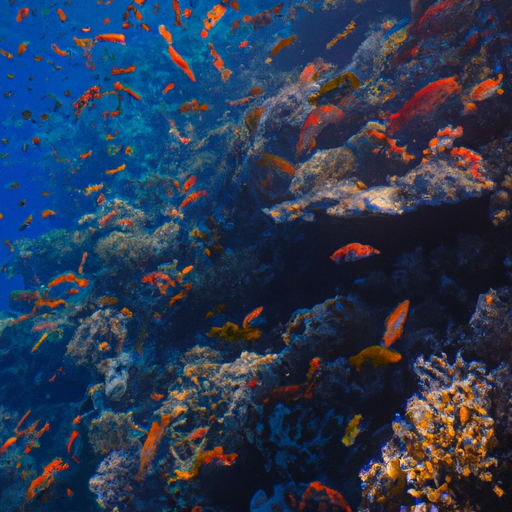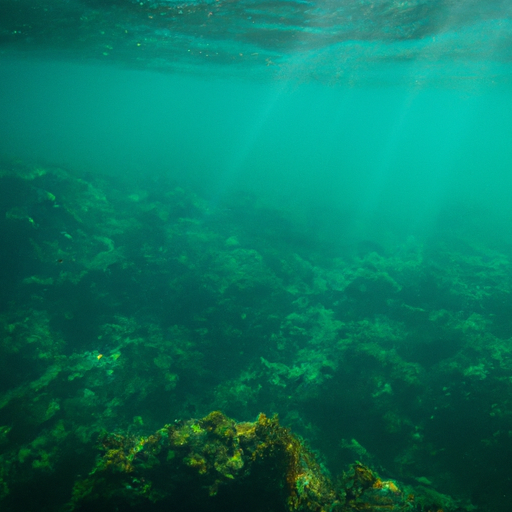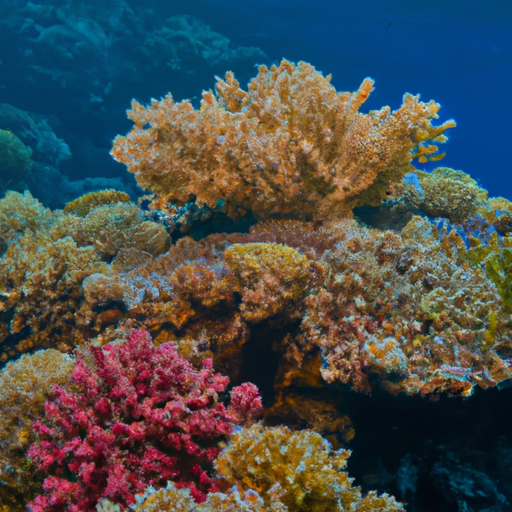The article “Diving into the Deep: Exploring the Hidden Treasures of the Ocean” delves into the mesmerizing and diverse world of the ocean, highlighting its incredible species diversity and the intricate behaviors of marine creatures. From vibrant coral reefs, often called the “rainforests of the sea,” to the mysterious and fascinating deep sea, the article showcases the beauty, adaptability, and importance of marine life. It also emphasizes the crucial role that marine organisms play in maintaining the balance of ecosystems and the need for preservation and protection to ensure the future of this extraordinary realm. With its captivating descriptions and emphasis on the wonders of the marine world, the article is sure to inspire readers to further explore and appreciate this fascinating environment.
Threats
The category of Threats in the context of security refers to potential risks or dangers that can harm or negatively impact an individual, organization, or system. Threats can come from various sources such as malicious actors, external attackers, internal employees, natural disasters, or technological failures. These threats can take various forms including cyberattacks, physical attacks, social engineering, data breaches, system vulnerabilities, or environmental hazards. It is crucial for individuals and organizations to identify, assess, and mitigate these threats effectively to ensure the security and integrity of their assets, systems, and operations. Through proactive risk management and the implementation of appropriate security measures, organizations can minimize the potential impact of threats and protect themselves against potential harm.
Protecting Marine Life: Understanding the Importance of Conservation Efforts
marine life can thrive. Additionally, reducing pollution and implementing sustainable fishing practices are essential for the long-term health of marine ecosystems.
Protecting marine life is not just important from an environmental perspective, but also for the well-being of human communities. Many coastal areas rely on marine resources for their livelihoods, including fishing and tourism industries. By ensuring the sustainability of these industries through conservation efforts, we can support local economies and preserve cultural and social connections to the ocean.
Furthermore, marine life plays a vital role in regulating climate and maintaining the health of our planet. Ocean organisms, such as phytoplankton, are responsible for a significant portion of the oxygen we breathe and play a crucial role in carbon sequestration. By protecting marine life, we can mitigate the impacts of climate change and preserve the well-being of all living organisms on Earth.
In conclusion, the significance of protecting marine life cannot be underestimated. Conservation efforts are essential for the preservation of biodiversity, the sustainability of coastal communities, and the overall health of our planet. By understanding the importance of marine life conservation and taking action to support it, we can ensure a sustainable and thriving future for both marine ecosystems and humanity.
The Impact of Climate Change on Marine Life: Challenging Times for Ocean Ecosystems
Rising Ocean Temperatures: Disrupting Marine Life
Rising ocean temperatures, caused by climate change, are having a significant impact on marine life. Coral reefs are particularly affected, as increased temperatures lead to the expulsion of algae and the subsequent bleaching and death of corals, endangering the numerous marine species that depend on these ecosystems. The altered distribution of marine species is also a concern, as some migrate towards cooler waters while others become stuck in unsuitable habitats, disrupting predator-prey relationships and the food chain. Marine mammals are impacted too, with changes in water temperature affecting their prey and promoting harmful algal blooms. Additionally, ocean acidification, also a consequence of climate change, threatens shell-forming organisms like corals and oysters, making them more vulnerable to predation and stress. Immediate action is needed to protect marine species and preserve ocean ecosystems.
Ocean Acidification: Threatening the Balance of Marine Ecosystems
Climate change has led to ocean acidification, a process that disrupts the delicate balance of marine life. As human activities release more carbon dioxide into the atmosphere, seawater absorbs the excess carbon dioxide, causing a decrease in pH levels and increased acidity in the oceans. This has profound consequences for marine organisms, particularly coral reefs that rely on symbiotic relationships with algae for survival. The acidification of the oceans also affects other marine species that rely on shell formation, such as oysters and clams. Their ability to build and maintain protective shells becomes compromised, making them more vulnerable to predation and other environmental stressors. Urgent action is imperative to mitigate the effects of ocean acidification and safeguard the health and sustainability of marine ecosystems.



